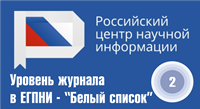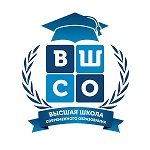РОЛЬ КОММУНИКАТИВНОЙ ЗАДАЧИ В РАЗВИТИИ НАВЫКОВ XXI ВЕКА НА ЗАНЯТИЯХ ПО ИНОСТРАННОМУ ЯЗЫКУ
Аннотация
Введение. Современное высшее образование ориентировано на формирование у выпускников гибких профессиональных навыков, позволяющих им успешно работать в условиях конкуренции и рыночной нестабильности 21 века. Целью исследования является определение роли коммуникативной задачи и выявление психолого-педагогических условий для формирования концепции «4К», включающую в себя такие ключевые компетенции как коммуникация, креативность, критическое мышление и кооперация.
Методология исследования. Исследование проведено методом анализа научной, учебно-методической литературы и педагогического опыта формирования профессиональных компетенций студентов высших учебных заведений.
Результаты. В статье показано, что в ходе диалогической иноязычной речи для студентов создаются благоприятные условия для развития гибких навыков. При соответствующей организации учебного процесса иноязычная речемыслительная деятельность студентов успешно реализуется через генерирование идей и доказательство аргументов, нацеленных на совместное решение коммуникативной задачи. Полученные результаты исследования вносят вклад в методологию и технологию современного профессионального образования, расширяя представление о роли коммуникативной задачи в формировании ключевых компетенций. На основе теоретического анализа автором выявлены следующие необходимые психолого-педагогические условия: формулирование коммуникативной задачи в виде проблемы и ситуации речевого общения, обучение студентов правилам сотрудничества и установлениe между ними доверительных отношений. Коммуникативная задача играет главную роль в создании условий для формирования гибких профессиональных навыков.
Область применения результатов. Результаты исследования могут быть применены в практике преподавания иностранного языка в высших профессиональных учреждениях.
Заключение. Было выявлено, что решение коммуникативной задачи в ходе профессиональной коммуникации является главным условием осознанного изучения иностранного языка и способствует развитию гибких навыков.
Скачивания
Литература
Vygotskiy L.S. Myshlenie i rech’ [Thinking and speech]. M.: Labirint 1999, 352 p.
Goreva T.A., Serova T.S. Formirovanie umeniy kommunikativno-rechevogo vzaimodeystviya pri obuchenii inoyazychnomu delovomu obshcheniyu [Formation of skills of communicative-speech interaction in teaching foreign language business communication.]. Perm’: Perm. gos. tekhn. un-t, 2005, 167 p.
Zhinkin N.I. Psikholingvistika: Izbrannye trudy [Psycholinguistics: Selected works]. M.: Labirint, 2009, 288 p.
Zimnyaya I.A. Psikhologiya obucheniya nerodnomu yazyku [Psychology of teaching a non-native language]. M.: Russkiy yazyk, 1989, 219 p.
Mirolyubov A.A., Gal’skova N.D., Bim I.L. Metodika obucheniya inostrannym yazykam: traditsii i sovremennost’: kollektivnaya monografiya [Methods of teaching foreign languages: traditions and modernity: a collective monograph]; ed. A.A. Mirolyubov. Obninsk: Titul, 2010, 463 p.
Passov E.I. Kommunikativnyy metod obucheniya inoyazychnomu govoreniyu [Communicative method of teaching foreign language speaking]. M.: Prosveshchenie, 1991, 223 p.
Rubinshteyn S.L. Osnovy obshchey psikhologii [Fundamentals of General Psychology]. Vol. 1. M., 1989, 560 p.
Serova T.S. Vestnik PNIPU. Problemy yazykoznaniya i pedagogiki, 2019, no. 1, pp. 125-146.
Fadel Ch., Bialik M., Trilling B. Chetyrekhmernoe obrazovanie: Kompetentsii, neobkhodimye dlya uspekha [Four-dimensional education: Competences necessary for success]. M.: Tochka Publishing Group, 2018, 240 p.
Shpak N.O. Problemy sovremennogo pedagogicheskogo obrazovaniya. Yalta: RIO GPA Publishing house, 2021, no. 71, pp. 306-309.
Boholano H. Smart Social Networking: 21st Century Teaching and Learning Skills. Research in Pedagogy, 2017, vol. n7 (1), pp. 21–29. https://doi.org/10.17810/2015.45
Griffin P. 21st Century Skills: The New Reality in Education. http://erazvitie.org/english/navyki_xxi_veka_novaja_realnost (accessed February 19, 2022).
Inch E.S., Warnick B. Critical Thinking and Communication: The Use of Reason in Argument, 6th ed., 2009.
Ruggiero V.R. The Art of Thinking: A Guide to Critical and Creative Thought, 11th ed., 2015.
World Economic Forum, 2016. New Vision for Education: Fostering Social and Emotional Learning through Technology. https://www3.weforum.org/docs/WEF_New_Vision_for_Education.pdf (accessed February 20, 2022)
Просмотров аннотации: 259
Copyright (c) 2022 Natalya O. Shpak

Это произведение доступно по лицензии Creative Commons «Attribution-NonCommercial-NoDerivatives» («Атрибуция — Некоммерческое использование — Без производных произведений») 4.0 Всемирная.





































